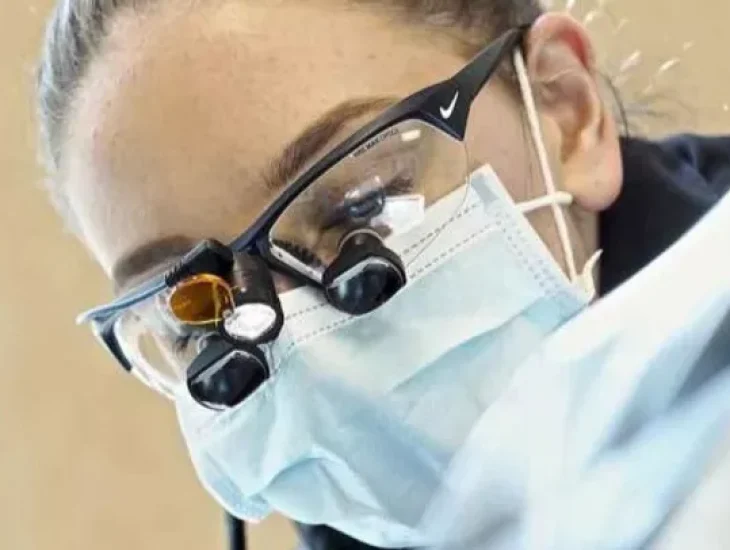With new training programs, periodontists could open a new front for spotting celiac disease early.
Celiac disease is a chronic autoimmune disorder that affects the digestive system, triggered by the consumption of gluten, a protein found in wheat, barley, and rye. It is estimated that about 1 in 100 people worldwide suffer from celiac disease, and the condition can have a wide range of symptoms, including gastrointestinal issues, fatigue, joint pain, skin rash, and mood disorders. However, what many people may not realize is that celiac disease can also have a significant impact on dental health, particularly in relation to periodontal health. In recent years, periodontists, who are dental specialists focusing on gum diseases and supporting structures of the teeth, have been increasingly recognizing the importance of understanding the impact of celiac disease on dental health. As a result, many periodontists are getting certified on the impact of celiac disease on dental health to better serve their patients who have this condition.
Understanding Celiac Disease and Its Impact on Dental Health
Celiac disease is an autoimmune disorder where the immune system mistakenly attacks the lining of the small intestine in response to the consumption of gluten. This immune response leads to inflammation and damage to the lining of the small intestine, which can impair the absorption of nutrients from food. This can result in a wide range of symptoms and complications, including dental issues.
One of the ways celiac disease can impact dental health is through the development of dental enamel defects. Enamel is the hard outer layer of the teeth that protects them from decay and damage. People with celiac disease may have enamel defects, such as white, yellow, or brown spots on their teeth, pitting, or grooves on the tooth surface. These enamel defects can make the teeth more susceptible to cavities and other dental problems.
In addition to enamel defects, celiac disease can also lead to an increased risk of gum diseases, such as gingivitis and periodontitis. Gingivitis is an inflammation of the gums, while periodontitis is a more severe form of gum disease that can result in the loss of bone and tissue that support the teeth. Studies have shown that people with celiac disease are more likely to have gum diseases compared to those without the condition. The exact mechanism behind this association is not yet fully understood, but it is believed that the systemic inflammation caused by celiac disease may contribute to the development of gum diseases.
Furthermore, celiac disease can also impact the oral microbiome, which is the community of bacteria and other microorganisms that live in the mouth. Research has shown that people with celiac disease have a different oral microbiome compared to those without the condition, with a higher prevalence of certain types of bacteria that are associated with gum diseases. These changes in the oral microbiome can further contribute to the increased risk of gum diseases in people with celiac disease.
Why Periodontists Are Getting Certified on the Impact of Celiac Disease on Dental Health
Periodontists are dental specialists who are trained to diagnose, treat, and prevent gum diseases, and they play a crucial role in maintaining oral health. As the link between celiac disease and dental health becomes more evident, periodontists are recognizing the importance of understanding the impact of celiac disease on dental health and incorporating this knowledge into their practice. Here are some key reasons why periodontists are getting certified on this topic:
- Understanding the Oral Manifestations of Celiac Disease: Periodontists who get certified on the impact of celiac disease on dental health gain knowledge about the oral manifestations of this autoimmune condition. Celiac disease can cause a range of oral health issues, such as enamel defects, aphthous ulcers, and recurrent oral stomatitis. Periodontists who are certified in this area can recognize these oral signs and symptoms, and provide appropriate treatment options to manage them effectively.
- Identifying Risk Factors and Treatment Strategies: Periodontists with certification on the impact of celiac disease on dental health are trained to identify the risk factors associated with this condition. They can assess patients for celiac disease risk factors such as a family history of the disease, recurrent canker sores, unexplained iron-deficiency anemia, and dental enamel defects. Based on their assessment, certified periodontists can provide appropriate treatment strategies, which may include referral to a gastroenterologist for further evaluation and management.
- Collaborating with a Multidisciplinary Team: Periodontists who are certified in the impact of celiac disease on dental health understand the importance of a multidisciplinary approach to managing patients with celiac disease. They can collaborate effectively with other healthcare professionals, such as gastroenterologists, nutritionists, and other dental specialists, to provide comprehensive care for patients with celiac disease. This may involve coordinating treatment plans, providing oral health education, and monitoring oral health outcomes in patients with celiac disease.
Are you passionate about Celiac and Gluten-Free living? You’ll love exploring our other blogs, filled with fascinating science and research topics that dive deep into this important subject matter.
- Gluten Diets In Young Kids May Link To The Development Of Celiac Disease
- Celiac Disease Blood Test Takes Us Closer To An Accurate Diagnosis
- Is The Meat Glue In Your Deli Products Making You Sick?
- Connection Between Undiagnosed Celiac Disease And Infertility, Miscarriages, And Stillbirths
- Is Celiac Disease Risk Factors For COVID-19?
- Intestinal Lymphoma: Is Your Risk Of Cancer Increased Due To Celiac Disease?
- Exploring The Connection Between Humans Microbes And Celiac Disease
- Periodontists Get Certified On Impact Of Celiac Disease On Dental Health
- What Are The Food Additives That May Cause Celiac Disease?
Remember to always stay curious and continue learning. Thank you for taking the time to read my post. Until next time…Jodes






